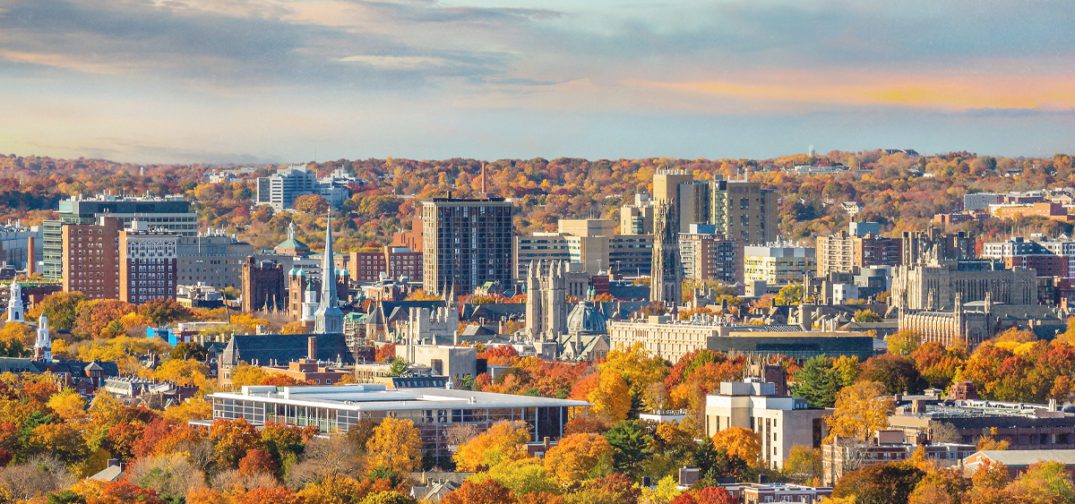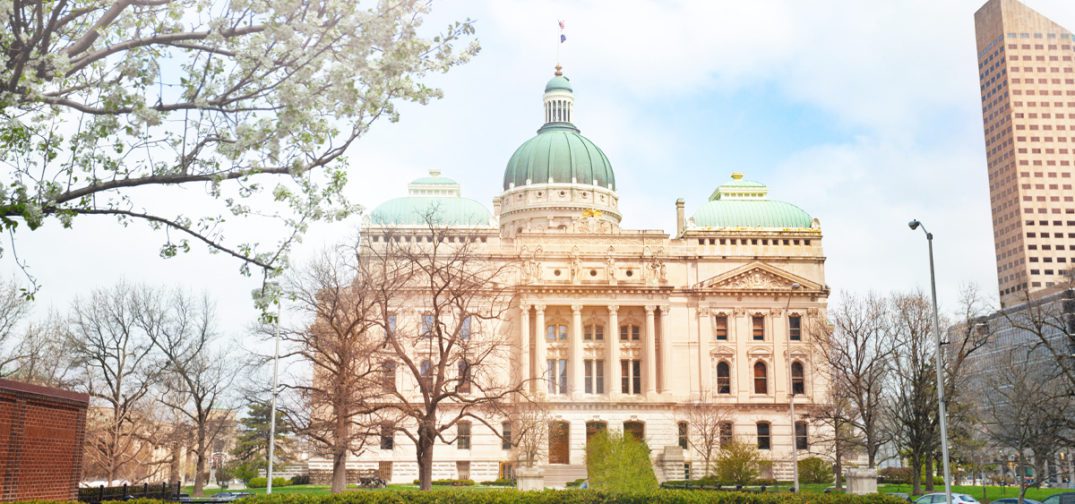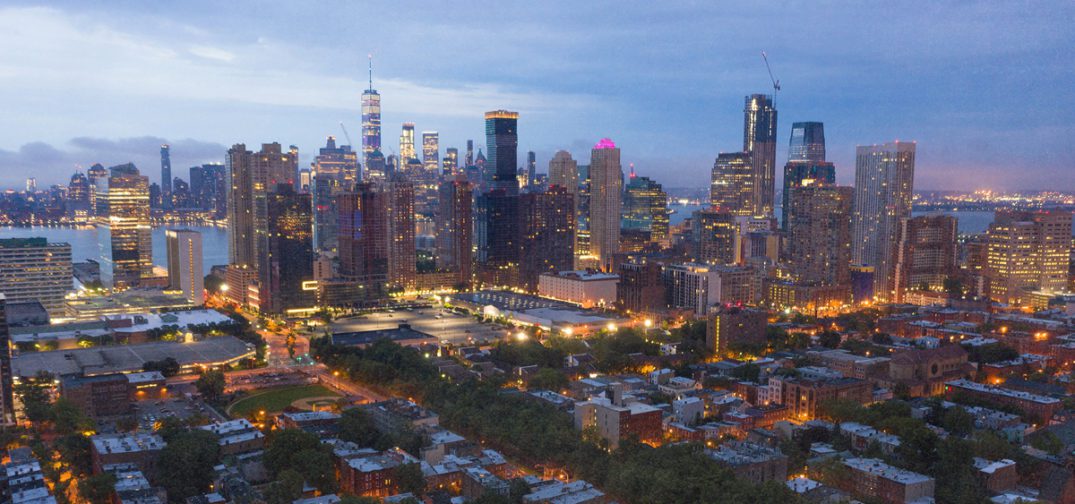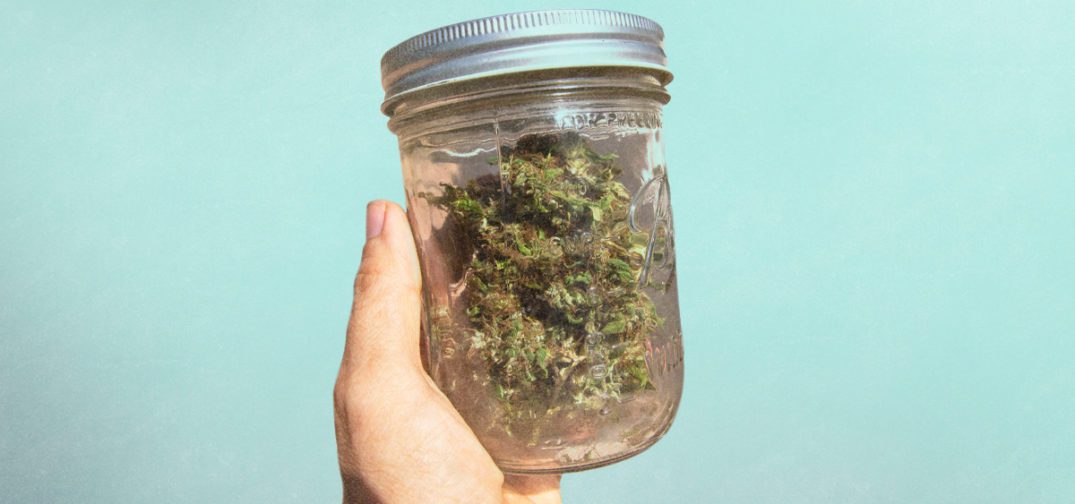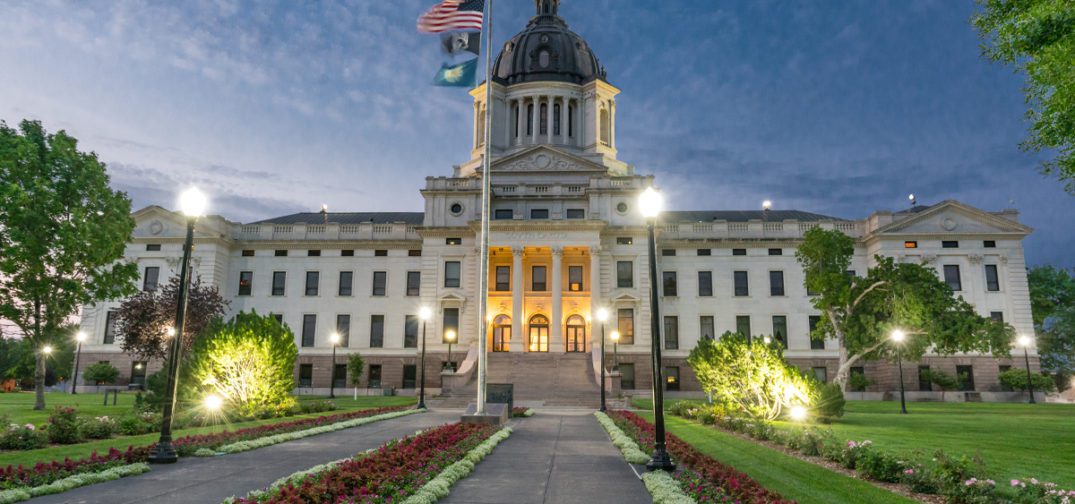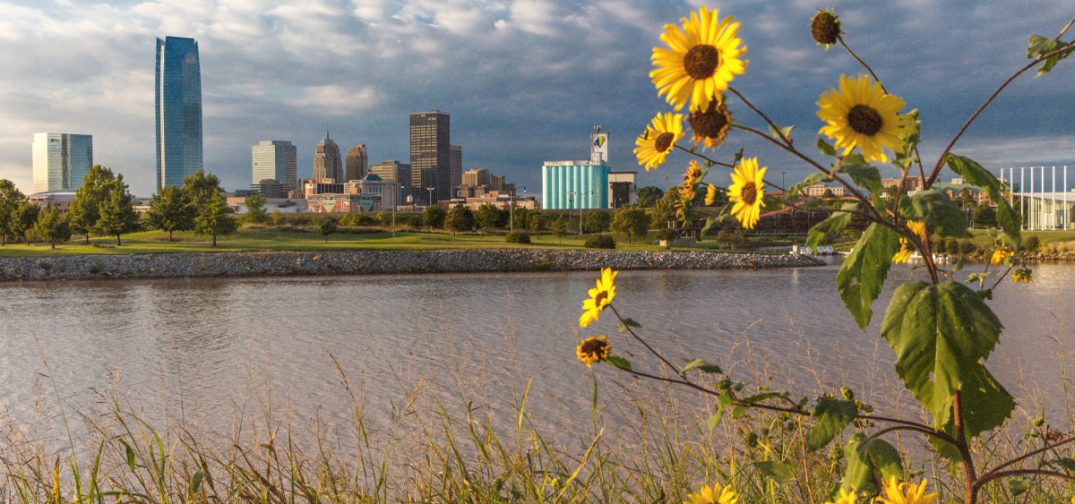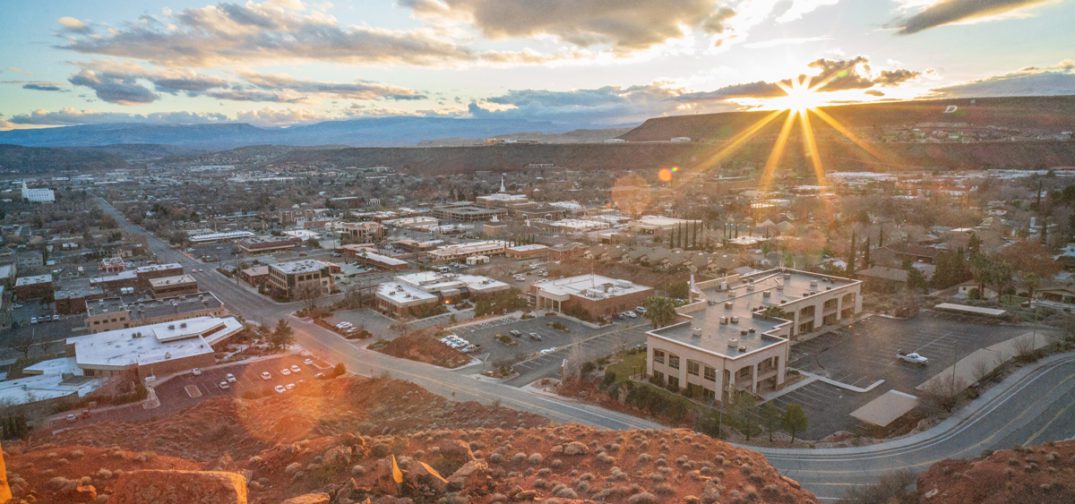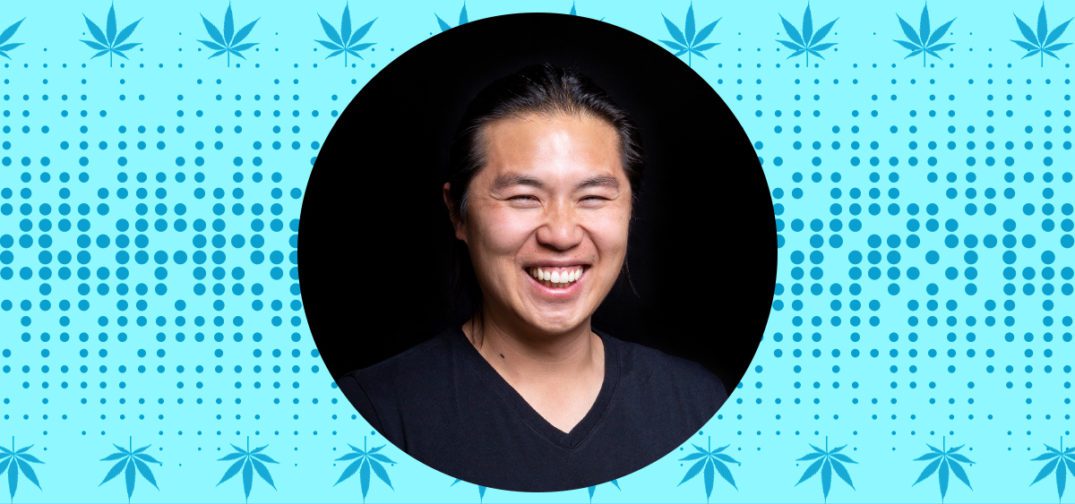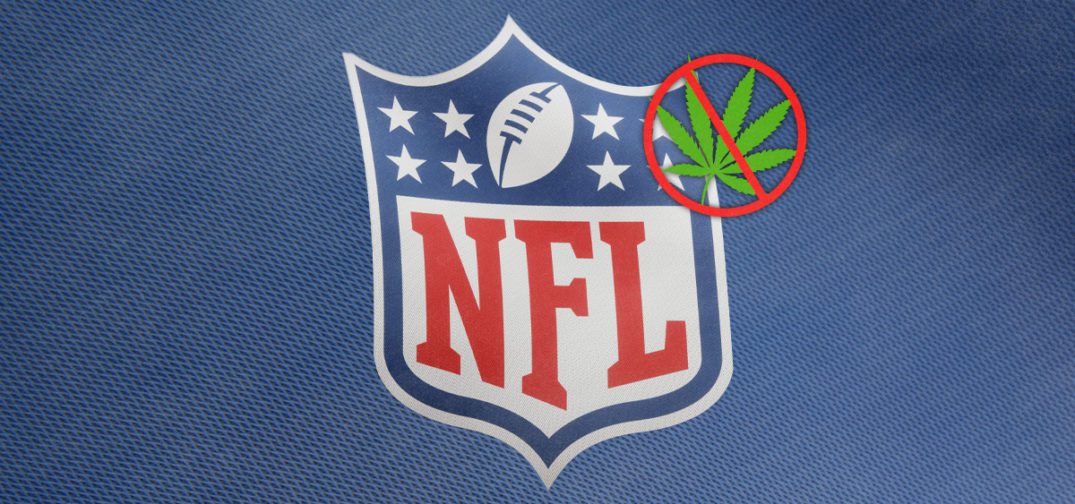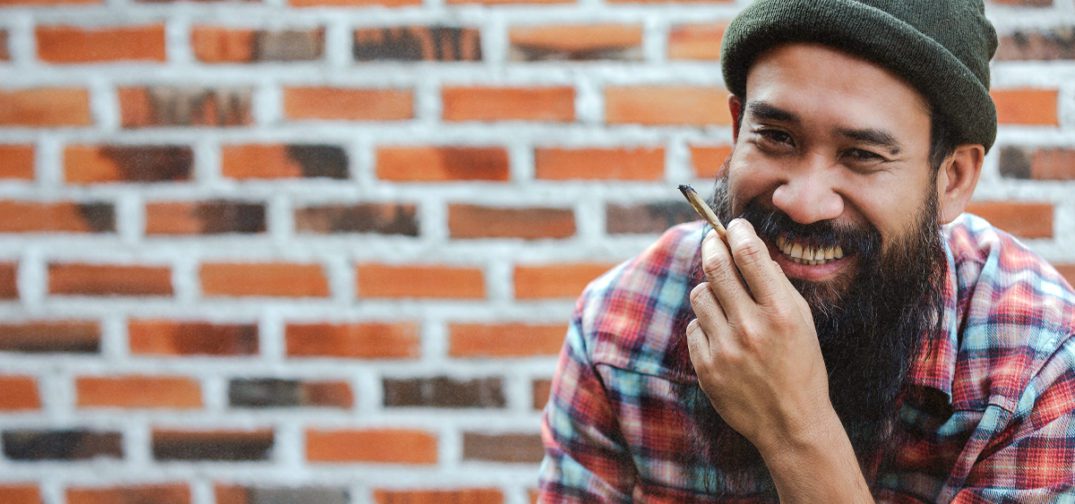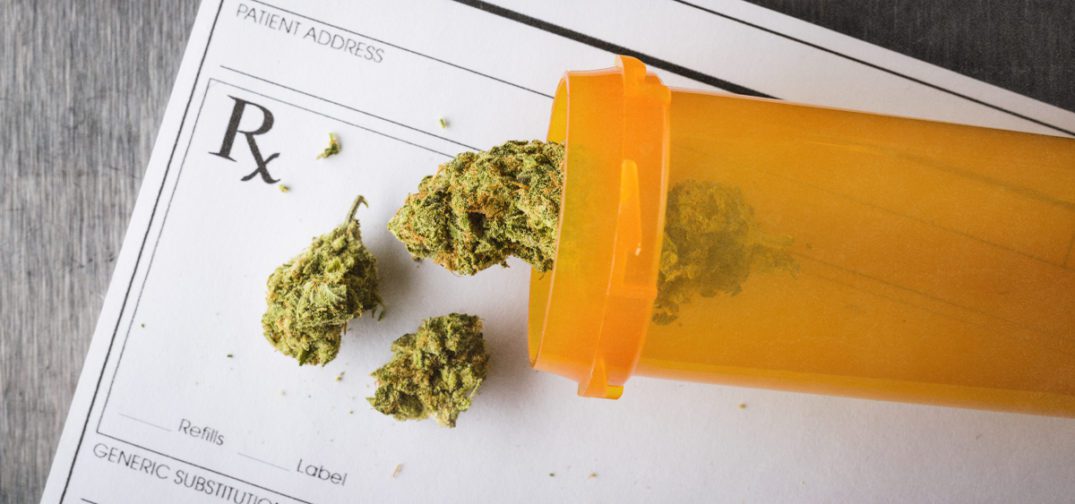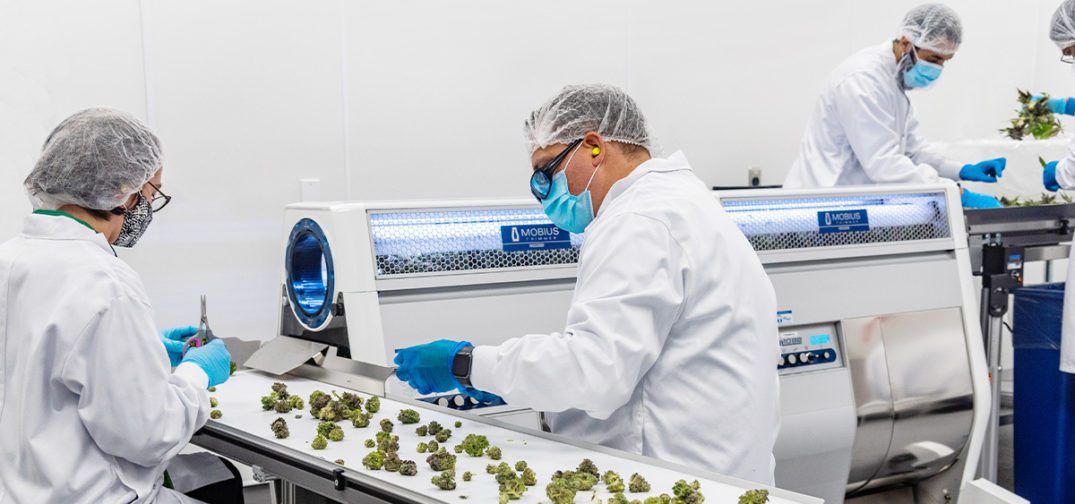While the business of retail cannabis requires a significant amount of ancillary partnerships to operate smoothly, perhaps none are more important for operating a successful and compliant cannabis dispensary than versatile, intuitive, and reliable point-of-sale software.
We recently connected with David Hua, CEO and co-founder of Meadow, to discuss how smart point-of-sale software can help unlock a cannabis entrepreneur’s true potential. This interview covers Meadow’s early days and team culture; the company’s new Dynamic Delivery service, which helps legally convert vehicles into mobile cannabis dispensaries; Meadow’s focus on community events; and more!
Scroll down for the full interview.
Ganjapreneur: What is the company culture at Meadow? Does Meadow take steps to preserve this culture?
David Hua: At Meadow, we have a team that is small but mighty. We believe in cannabis and care deeply about the success of the industry in California and beyond. We are here for the long haul; in fact, the majority of our team has been here since we first launched.
We started as a group of California cannabis patients who wanted to build better tools for dispensaries and their customers. We’re committed to our mission of building the best software in cannabis. We believe that cannabis is medicine and is essential, we advocate for wider access, and we fight for a more equitable, inclusive, and compassionate industry. We adapt to changes quickly, we have deep expertise in our fields, and we only ship the best.
Preserving this culture is extremely important to us, so we hire slowly and with intention. We also prioritize and invest heavily in our team — we know that in order to have a team that invests in our mission and our customers, we have to first prioritize investing in them.
How did your experience in the startup accelerator Y Combinator help Meadow succeed?
In 2015, we graduated from startup accelerator Y Combinator (YC) as their first-ever cannabis company. They believed in our vision and took a bet on us. At the time, California was the epicenter of both technology and cannabis but the two hadn’t converged. We wanted to change that, and YC saw the potential in our exceptional technology, product-market fit, and the traction we were gaining among dispensaries and their customers. Fast forward 7 years, we now process billions in legal cannabis sales with a system dispensaries say they can’t live without
Our experience with YC taught us to be relentlessly resourceful, to challenge assumptions, and to always make things people want. They taught us to be disciplined, to go deep in our areas of expertise, and to build really great products. They taught us how to pitch and secure funding from the best investors and venture capitalists in the game, including all-stars like Justin Kan, Steve Huffman, E40, Joe Montana, Slow Ventures, SOMA Capital, and Poseidon Asset Management.
What was the first service that Meadow built, and how do you decide which features and integrations will come next for the platform?
We started with delivery in 2014. Living in San Francisco, everything was delivered and on-demand, making this “last mile” a great place to start — getting cannabis to customers in a way that was fast, convenient, and delightful. We gave customers the power to grab their phones and order from local dispensaries with professional delivery they could trust.
When deciding what to build next, we talk to our dispensary clients and spend a lot of time with them. We really get to know their day-to-day operations, best practices, and pain points. We get a wide perspective from dispensaries and delivery operators of all sizes, and use that to create our product roadmap and build exactly what they need.
This is how we grew from delivery to the most comprehensive cannabis retail system available. We understand that our customers want a single system that is foolproof, easy to use, and makes compliance painless. They want features that drive sales, cut costs, engage customers, and give them a competitive edge. That’s why Meadow’s system now integrates Point-of-Sale with inventory, menus, marketing, CRM, loyalty, compliance, analytics, strategic integrations, and, of course, delivery.
Meadow offers a wide array of features with a super clean interface. Are there SOPs in place to maintain these standards as you continue building out the platform?
The number one piece of feedback we get is that Meadow’s system is easy to use and well designed. Here’s an example, the operations manager at Vapor Room in San Francisco, Allie Felton, said “Meadow makes my life a lot easier as manager because the interfaces are clean and that keeps each task really simple.” This is the feedback we love to hear. There is so much complexity in cannabis retail and in Meadow’s software, so we utilize clean interfaces, good design, and easy flows to make the system simple for everyone from top management to the new budtender starting on his first day.
We also make sure new features are easy to adopt and incorporate into a dispensary’s day-to-day flow. We have training resources so teams get up to speed on new features like marketing, inventory forecasting, or analytics in minutes, and can see the value, ROI, and increased revenue right away.
One way we maintain these standards is with extensive testing, both internally and out in the field. We maintain a tight feedback loop between our clients and the engineering team, so we stay informed about how operators are using new features and can make quick, effective updates when needed. We also stay close to the regulations and build compliance into every facet of our system. No one wants to make a reporting error that could get flagged or jeopardize their license, so we put systems and guardrails in place to keep that from happening.
What kind of R&D did Meadow’s Dynamic Delivery service undergo before launching? How long did the process take?
Meadow’s Dynamic Delivery is a new model of cannabis delivery for retailers that allows vehicles to operate as mobile dispensaries — roaming inventory and packaging hubs with their own product offerings, menus, service areas, marketing, and more.
Our Dynamic Delivery journey really started in 2015 when we lobbied for safe, legal delivery to patients across California, despite local retail bans. Delivery-for-all was a huge win that continues to serve residents and retailers throughout the state. Dynamic delivery was a natural evolution of our existing system, layering in functionality for a new type of delivery that is optimized for speed and scale. Before launching, we spent a lot of time consulting with dispensaries and delivery operators to make sure we made exactly what they needed. When we built the first version of Dynamic Delivery, we launched a closed beta with a select group of Meadow dispensaries. This allowed us to test the software out in the world, see how it was being used, gather feedback, and make improvements.
Delivery is now more in-demand than ever, with Covid accelerating an already growing trend. At the same time, there are not enough licenses in California for retailers that want to scale. Dynamic delivery helps retailers harness growth by scaling delivery operations and making each drop count. One of our clients, Cannable, said using Dynamic Delivery cut their delivery times from hours to 20 minutes. When we got that feedback in our beta, we knew we were ready to launch and bring Dynamic Delivery to dispensaries and their customers throughout the state.
Has Dynamic Delivery been tested outside of Meadow’s home city of San Francisco? Can the feature be used in all types of locations, from rural towns to cities?
Absolutely. In fact, Dynamic Delivery is an incredible tool for delivering to the 65% of California that does not have legal cannabis retail. In California, there is a system of local control whereby each municipality chooses whether to allow commercial activity, like cultivation and retail. While the majority of the state still does not allow for legal retail, cannabis can be delivered anywhere. Retailers can now put vehicles on the road that serve defined zones and do not have to travel back and forth between a storefront or inventory hub. This makes delivery faster, more efficient, and scalable, so operators can grow their fleet and reach new territories throughout the state.
Another unique aspect of the Dynamic Delivery model is that any location can be defined as a delivery zone – from an entire county or a single address. Imagine Warriors game night at Chase Center. If a local retailer wanted to capitalize on the thousands of fans coming to the area, they could designate the stadium as a zone, create a customized menu for fans, and allow them to order from their mobile devices for delivery in front of or near the stadium. Dynamic is giving dispensaries a new delivery toolset to meet customers exactly where they are, with exactly what they want, exactly when they want it.
How do events like Hall of Flowers and Emerald Cup use Meadow to help event-goers conduct compliant cannabis sales?
Meadow’s point of sale technology has made it easy for distributors, retailers, and brands to work together to sell cannabis at some of the largest legal cannabis events in the state, including The Emerald Cup, Hall of Flowers, Secret Sesh, and Northern Nights.
Events are extremely important in the cannabis industry because they allow brands to have direct, face-to-face interactions with customers. Meadow’s system is easy to learn, easy to use, intuitive, and fast for a seamless experience. We also build compliance into every workflow to remove the burden of regulations; this allows brands to focus their time and energy on customers so they can make meaningful connections and drive sales.
After our last Emerald Cup, Ranesha Mattu from Nabis said “Meadow is super fast. I’d never used it before and it’s really intuitive. The usability is awesome.” We love this kind of feedback and plan to continue powering cannabis event sales in California and beyond.
What role have community events played in Meadow’s growth?
Events have been part of Meadow’s DNA since the beginning. Coming out of YC in 2015, we hosted events where we brought together entrepreneurs, operators, activists, regulators, and other stakeholders. We learned that if you’re not at the table, you’re on it, and there was room for everyone who wanted to show up, put in the work, and be a part of the community. These events allowed us to connect with the community, learn directly from operators about what was going on in their worlds, disseminate information and resources quickly, and work together collaboratively.
Since then we have hosted or been part of hundreds of events, including educational and equity workshops, festivals, social events, regulator roundtables, investor meetups, and more. Our aim is to build connections and find collaborative solutions to issues the industry faces. Meadowlands is the largest event we host, bringing hundreds of cannabis operators and stakeholders together for a weekend in the Mendocino redwoods.
Why did the brand decide to throw the first Meadowlands cannabis industry retreat in 2018?
In the summer of 2018, we hosted the first annual Meadowlands, a cannabis industry retreat in the heart of the Emerald Triangle. We started this gathering because we wanted to create a space where cannabis operators could share knowledge, build valuable alliances, and celebrate that we’re still standing. We wanted to take cannabis events out of busy hotel lobbies and conference centers where cannabis consumption is banned, and bring them closer to the cultivators and the heart of the community. We wanted to get back to our roots, get back to nature, and bring together the community in a meaningful way.
It’s important we carve out time to reconnect, remember we’re not in it alone, and find the fortitude to keep building this industry together. Meadowlands has become a truly singular event, facilitating important conversations on everything from local compliance to the future of psychedelics. Cannabis has always been about community, so it’s critical to maintain these connections and channels of communication as the industry continues to grow and evolve.
What is an essential component to building a SaaS that is both functional and useful?
A component that is essential to our team, our community, and our software is resilience. The ability to recover quickly from setbacks, to work with ever-changing regulations, to continually improve, and to stick around for the long haul. Just like the cannabis plant, we’ve learned to adapt and change, which has ultimately led to tremendous growth and strength.
Smooth seas do not make good sailors, so we have learned how to operate and build in uncertainty, how to navigate cumbersome restrictions, how to pivot and stay flexible. We know how to make it work.
At Meadow, our team cares deeply about the cannabis industry and the operators we serve. We’re in it for the long haul so we don’t take shortcuts. It takes this kind of resilient, solid, and consistent team with a shared mission to build truly exceptional products.
A huge “thank you” to David for answering all of our questions! Learn more about Meadow and CEO David Hua at GetMeadow.com.
